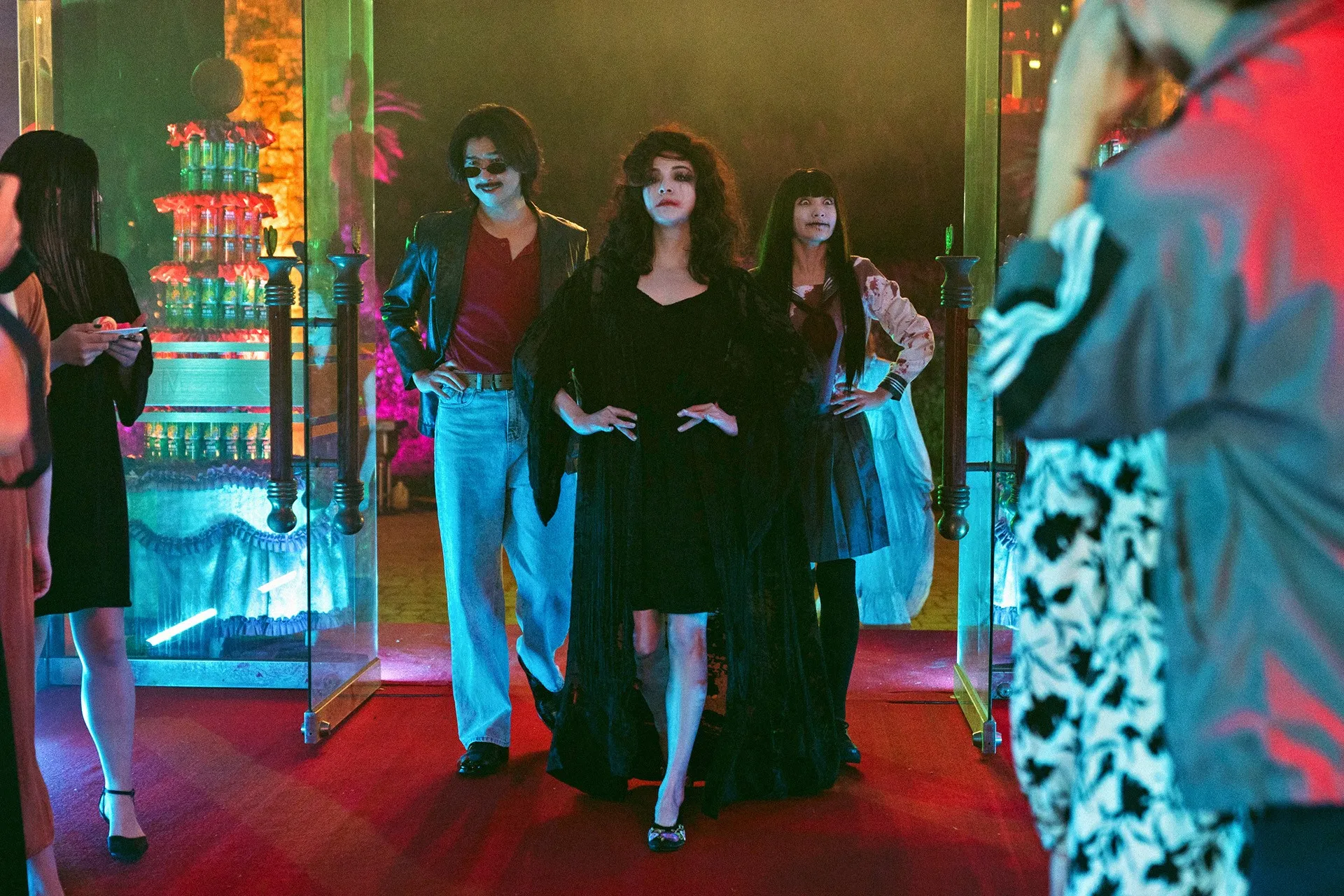In Dead Talent Society, Taiwanese director John Hsu (Detention) turns a haunted campus into a liminal purgatory where forgotten souls scream for one more shot at recognition. It’s a supernatural comedy, yes—but buried within its ghostly gags and pop-culture chaos is a brutal satire about the price of mediocrity in an era obsessed with going viral.
The film follows a ghost stuck in afterlife limbo—once a talent show reject, now trapped with others who never “made it.” They weren’t terrible. Just… not enough. And that’s the horror Dead Talent Society taps into with unsettling precision: not dying, but being average. Not failing, but fading.
In John Hsu’s world, the afterlife is managed like a low-tier variety show. Ghosts beg for audience engagement. Viral clips determine eternal worth. It’s cruel, hilarious, and uncomfortably real.
Because let’s face it—being an average person today is existentially exhausting. Late capitalism doesn’t just demand productivity; it demands spectacle. You can be kind, competent, hardworking—and still feel like a ghost unless you’ve “done numbers” online. Dead Talent Society mocks this algorithmic theology where attention is salvation and obscurity is damnation.
And yet, here’s where the film gets really sharp: it understands why people crave virality. Not for money. Not even for fame. But for recognition. In a world that rarely applauds quiet resilience, social media has become a sanctuary for the ordinary. Mediocrity, once a private shame, has turned into communal content. We meme our failures. We post our cringe. We share our pain—and find kinship in the awkwardness.
But that solidarity doesn’t last.
Because once a clip goes viral—once the world begins to watch—the joy curdles. We want to be more. We want to be better. And in that chase for upgrade, we abandon the very relatability that got us noticed. The ordinary becomes polished. The unfiltered becomes branded. And we become strangers to the self that once connected us to others.
This is where Dead Talent Society hits hardest—not in its punchlines, but in its despair. Beneath the pastel neon and ghostly slapstick is a tragedy of erasure: the pressure to transcend ordinariness at all costs, even if it means burying what made us human.
Gingle Wang delivers a standout performance that swings between theatrical absurdity and aching introspection, anchoring the film’s emotional chaos. Hsu’s direction, meanwhile, embraces tonal whiplash—one minute it’s a karaoke exorcism, the next it’s a melancholic meditation on lost dreams. The film doesn’t just parody talent shows; it exorcises a culture that feeds on aspiration and discards those who fall short.
Not every joke lands. Some scenes overstay their welcome. But as a cultural text, Dead Talent Society is a bold, messy mirror held up to a society that fears invisibility more than death. It’s not just a ghost story. It’s a warning: about chasing attention, abandoning authenticity, and waking up one day to find you’ve become a performance you no longer recognize.
Now streaming on Netflix. Don’t watch it for the ghosts. Watch it for the parts of yourself they represent.

Leave a Reply